Nissan X-Trail vs SEAT Arona – Differences & prices compared
Both models have their strengths – but which one suits you more?
Compare performance, efficiency, price and space directly: Nissan X-Trail or SEAT Arona?
Costs and Efficiency:
Price and efficiency are key factors when choosing a car – and this is often where the real differences emerge.
SEAT Arona has a decisively advantage in terms of price – it starts at 19300 £, while the Nissan X-Trail costs 34000 £. That’s a price difference of around 14726 £.
Fuel consumption also shows a difference: SEAT Arona manages with 5.40 L and is therefore minimal more efficient than the Nissan X-Trail with 5.70 L. The difference is about 0.30 L per 100 km.
Engine and Performance:
Power, torque and acceleration are the classic benchmarks for car enthusiasts – and here, some clear differences start to show.
When it comes to engine power, the Nissan X-Trail has a distinct edge – offering 213 HP compared to 150 HP. That’s roughly 63 HP more horsepower.
In acceleration from 0 to 100 km/h, the Nissan X-Trail is clearly perceptible quicker – completing the sprint in 7 s, while the SEAT Arona takes 8.40 s. That’s about 1.40 s faster.
In terms of top speed, the SEAT Arona performs minimal better – reaching 210 km/h, while the Nissan X-Trail tops out at 200 km/h. The difference is around 10 km/h.
There’s also a difference in torque: Nissan X-Trail pulls convincingly stronger with 525 Nm compared to 250 Nm. That’s about 275 Nm difference.
Space and Everyday Use:
Cabin size, boot volume and payload all play a role in everyday practicality. Here, comfort and flexibility make the difference.
Seats: Nissan X-Trail offers clearly perceptible more seating capacity – 7 vs 5.
In curb weight, SEAT Arona is convincingly lighter – 1188 kg compared to 1668 kg. The difference is around 480 kg.
In terms of boot space, the Nissan X-Trail offers distinct more room – 585 L compared to 400 L. That’s a difference of about 185 L.
In maximum load capacity, the Nissan X-Trail performs somewhat better – up to 1424 L, which is about 144 L more than the SEAT Arona.
When it comes to payload, Nissan X-Trail slight takes the win – 574 kg compared to 522 kg. That’s a difference of about 52 kg.
Who comes out on top?
Overall, the Nissan X-Trail shows itself to be wins the duel decisively and secures the title of DriveDuel Champion.
It convinces with the more balanced overall package and proves to be the more versatile choice for everyday use.
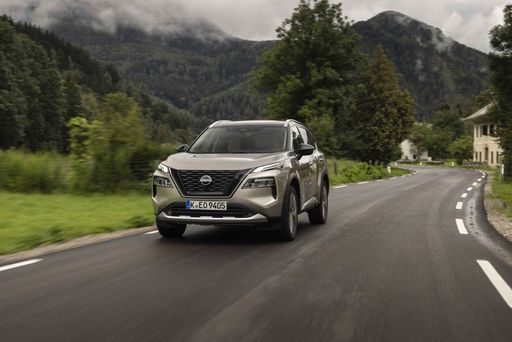
Nissan X-Trail
Nissan X-Trail
The Nissan X-Trail stands out with its spacious interior and practical design, making it an ideal choice for families and adventure enthusiasts alike. Its sleek exterior styling is complemented by modern technology features that enhance both driving pleasure and safety. This versatile SUV offers a comfortable ride, whether navigating city streets or exploring off-road paths, ensuring you travel in style and comfort.
details @ germany.nissannews.com
@ germany.nissannews.com
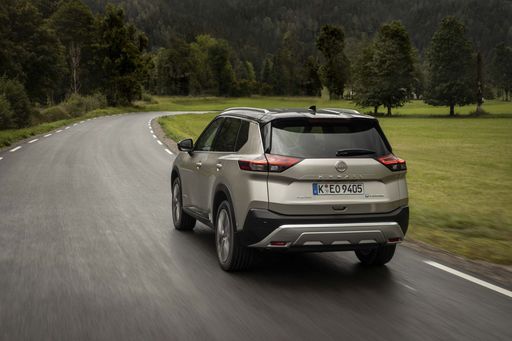 @ germany.nissannews.com
@ germany.nissannews.com
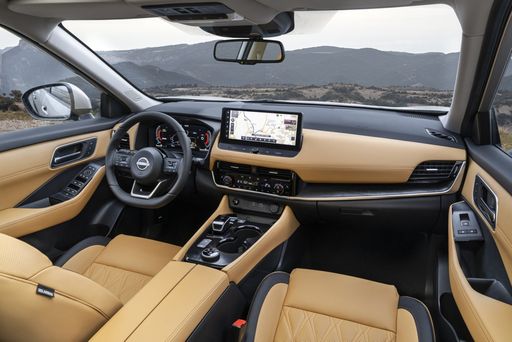 @ germany.nissannews.com
@ germany.nissannews.com
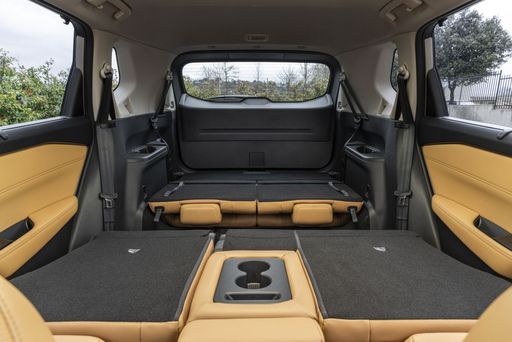 @ germany.nissannews.com
@ germany.nissannews.com
SEAT Arona
The SEAT Arona is a stylish compact SUV that blends urban agility with a robust design, making it an ideal choice for city dwellers and adventure seekers alike. Inside, it offers a well-crafted interior with modern technology and connectivity features that enhance the driving experience. With its efficient engine options and responsive handling, the Arona provides a dynamic ride while maintaining impressive fuel efficiency.
details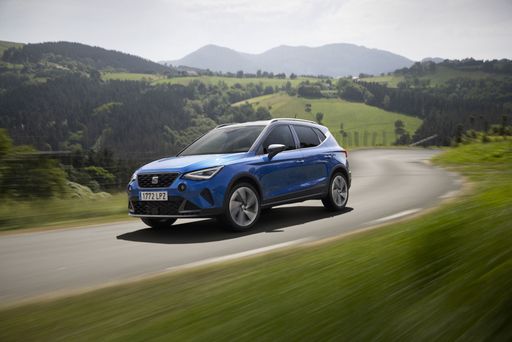 @ seat-mediacenter.de
@ seat-mediacenter.de
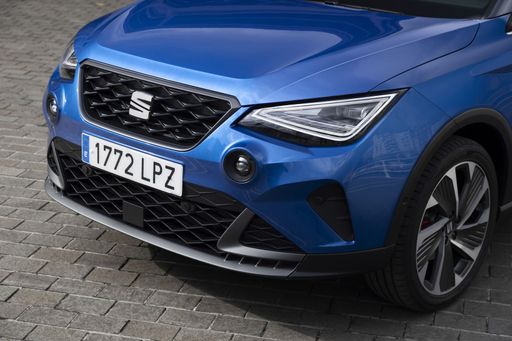 @ seat-mediacenter.de
@ seat-mediacenter.de
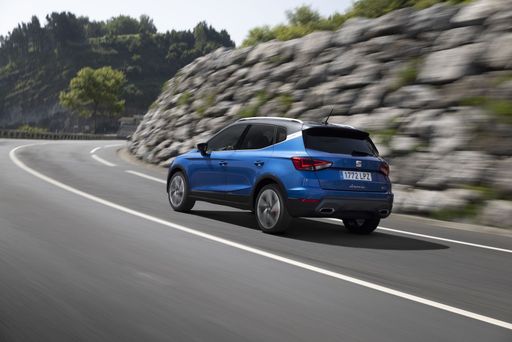 @ seat-mediacenter.de
@ seat-mediacenter.de
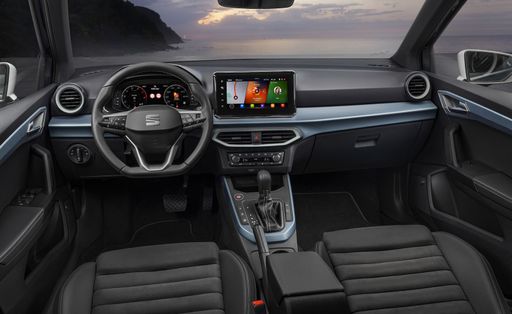 @ seat-mediacenter.de
@ seat-mediacenter.de

|

|
|
|
|
Costs and Consumption |
|
|---|---|
|
Price
34000 - 50400 £
|
Price
19300 - 29300 £
|
|
Consumption L/100km
5.7 - 6.9 L
|
Consumption L/100km
5.4 - 5.6 L
|
|
Consumption kWh/100km
-
|
Consumption kWh/100km
-
|
|
Electric Range
-
|
Electric Range
-
|
|
Battery Capacity
-
|
Battery Capacity
-
|
|
co2
131 - 161 g/km
|
co2
122 - 128 g/km
|
|
Fuel tank capacity
55 L
|
Fuel tank capacity
40 L
|
Dimensions and Body |
|
|---|---|
|
Body Type
SUV
|
Body Type
SUV
|
|
Seats
5 - 7
|
Seats
5
|
|
Doors
5
|
Doors
5
|
|
Curb weight
1668 - 1961 kg
|
Curb weight
1188 - 1268 kg
|
|
Trunk capacity
177 - 585 L
|
Trunk capacity
400 L
|
|
Length
4680 mm
|
Length
4153 mm
|
|
Width
1840 mm
|
Width
1780 mm
|
|
Height
1720 mm
|
Height
1537 mm
|
|
Max trunk capacity
1396 - 1424 L
|
Max trunk capacity
1280 L
|
|
Payload
432 - 574 kg
|
Payload
502 - 522 kg
|
Engine and Performance |
|
|---|---|
|
Engine Type
Petrol MHEV, Full Hybrid
|
Engine Type
Petrol
|
|
Transmission
Automatic
|
Transmission
Manuel, Automatic
|
|
Transmission Detail
CVT, Reduction Gearbox
|
Transmission Detail
Manual Gearbox, Dual-Clutch Automatic
|
|
Drive Type
Front-Wheel Drive, All-Wheel Drive
|
Drive Type
Front-Wheel Drive
|
|
Power HP
163 - 213 HP
|
Power HP
95 - 150 HP
|
|
Acceleration 0-100km/h
7 - 9.6 s
|
Acceleration 0-100km/h
8.4 - 11.3 s
|
|
Max Speed
170 - 200 km/h
|
Max Speed
182 - 210 km/h
|
|
Torque
300 - 525 Nm
|
Torque
175 - 250 Nm
|
|
Number of Cylinders
3
|
Number of Cylinders
3 - 4
|
|
Power kW
120 - 157 kW
|
Power kW
70 - 110 kW
|
|
Engine capacity
1497 cm3
|
Engine capacity
999 - 1498 cm3
|
General |
|
|---|---|
|
Model Year
2024
|
Model Year
2025
|
|
CO2 Efficiency Class
F, D, E
|
CO2 Efficiency Class
D
|
|
Brand
Nissan
|
Brand
SEAT
|
Is the Nissan X-Trail offered with different drivetrains?
The Nissan X-Trail is offered with Front-Wheel Drive or All-Wheel Drive.
The prices and data displayed are estimates based on German list prices and may vary by country. This information is not legally binding.
